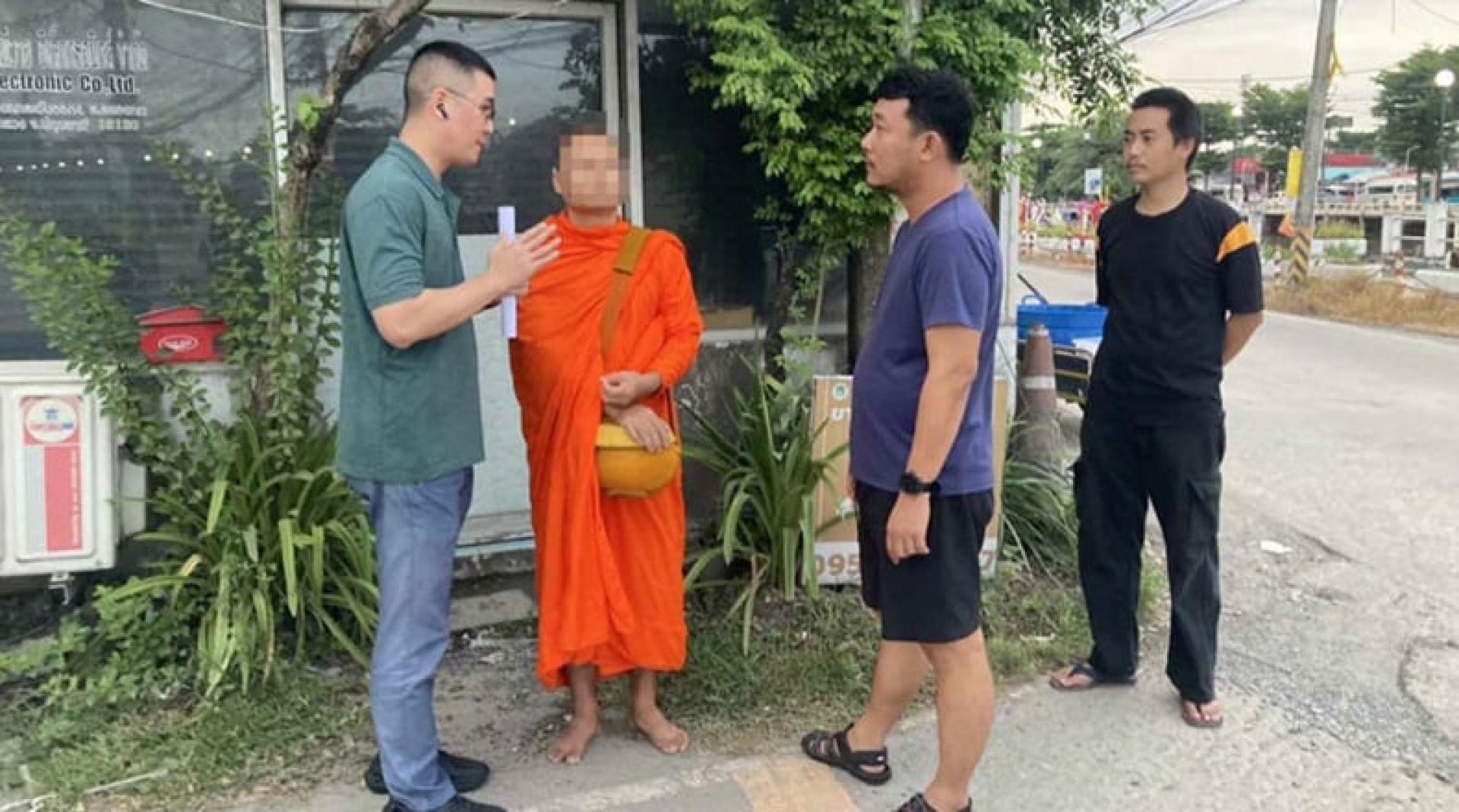On the 5th, Thai police launched raids on 200 temples across the country, focusing on cracking down on over a hundred individuals accused of becoming monks to evade legal sanctions after committing crimes.
According to Thai media reports, officers from the Central Investigation Bureau led the raids. They targeted suspects in cases of corruption, money laundering, drunk driving, drug trafficking, and transnational crimes, who are believed to have infiltrated the monkhood or are hiding in temples.
A total of 181 people have been listed as wanted suspects by the police, among whom 154 have already been ordained as monks, including one abbot, while another 27 have already left the monkhood.
On the same day, police arrested a suspect in Pathum Thani Province—45-year-old Surat—who was caught in the act while out on alms round.
Investigations revealed that Surat had been a monk for a long time, but was, in fact, a wanted person for transnational drug money laundering. Accounts under his name were used by drug trafficking groups as channels for money laundering. Surat himself claimed his account had been borrowed by a friend and that he was unaware of it, but police still escorted him back to his original temple to be defrocked based on the evidence.
Local villagers and other monks at the temple stated that Surat was usually very disciplined in observing precepts, was devoted to promoting Buddhism, and went out every day for alms round as usual. In response, police said they would conduct an in-depth and lawful investigation to uncover the truth.
Additionally, Deputy Director-General of the Central Investigation Bureau, Chalong, stated that over 200 complaints had been received by the Buddhist authorities, many of which involve serious allegations such as the buying and selling of monk positions.
He said that 30 of these cases are currently under investigation by the Central Investigation Bureau, while over 100 cases have been handed over to various provincial and regional police stations across the country for further action.
Chalong stated that the majority of complaints revolve around monks' financial misconduct and monks having improper relationships with women.
He said that some cases are supported by evidence, which will aid the investigation, while other cases remain unclear and require further investigation.
